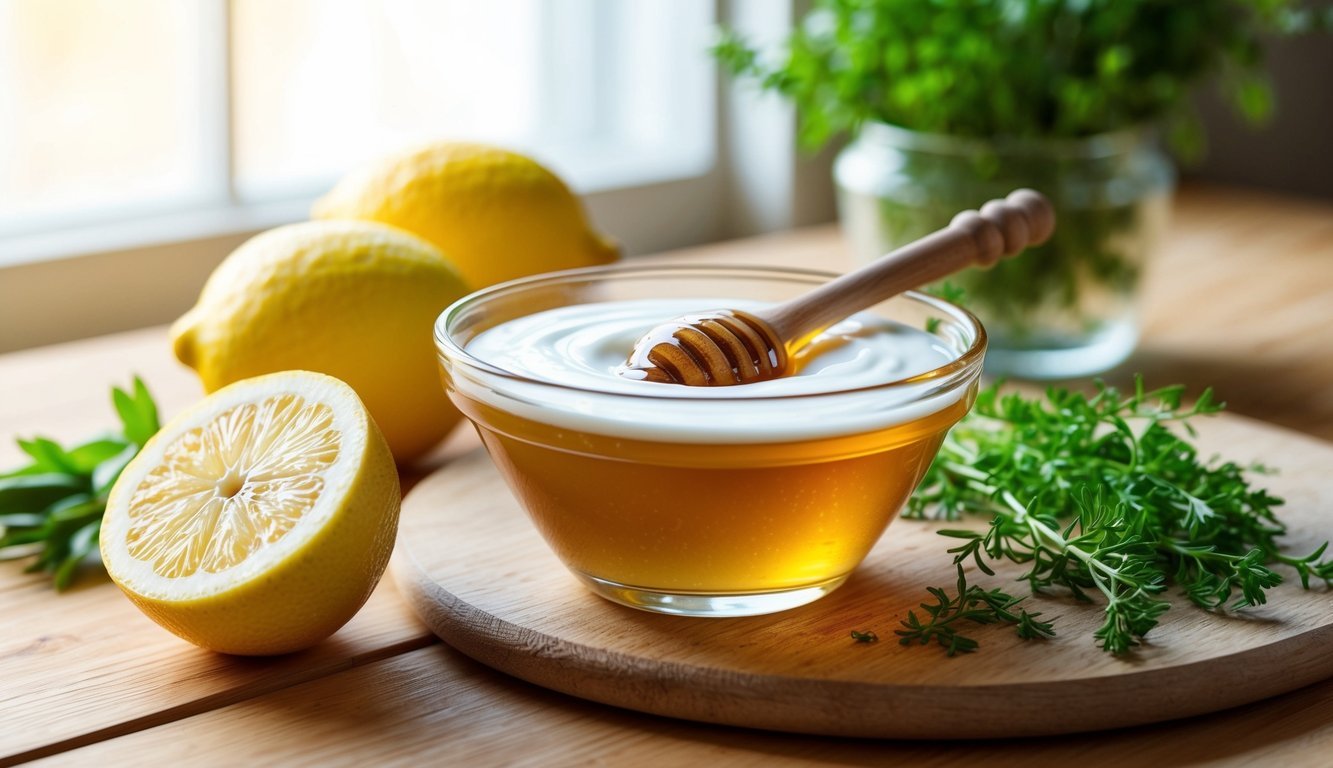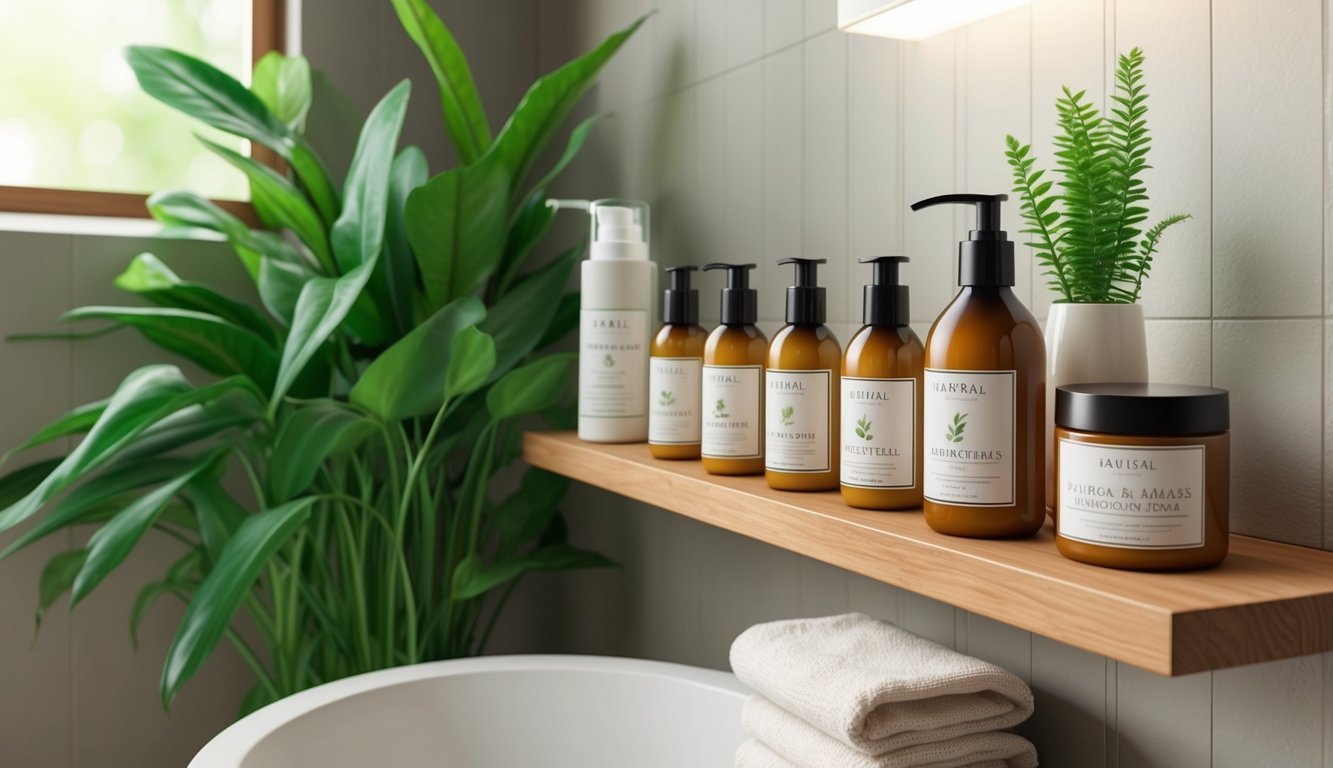Taking care of my skin naturally has become a key part of my daily routine.
I’ve learned that improving skin health isn’t just about expensive products or treatments; it’s about simple, effective steps that anyone can follow. With a few adjustments to my habits, I’ve seen noticeable changes in my skin’s appearance and texture.

In this article, I want to share seven straightforward steps that can help you achieve healthier skin without complicated regimens or harsh chemicals.
From hydration to nutrition, these tips are easy to incorporate into your lifestyle.
By focusing on what works for my skin naturally, I’ve found that small changes can lead to big results.
1) Drink plenty of water daily
Staying hydrated is one of the simplest ways to boost my skin health.
When I drink enough water, my skin looks more vibrant and fresh.
Water helps maintain skin elasticity and keeps it plump.
I’ve noticed that when I’m well-hydrated, my skin feels softer and less prone to dryness.
If I don’t drink enough water, my skin can become dull and tight.
I try to keep a water bottle nearby as a reminder to sip throughout the day.
Not only does water hydrate my skin, but it also flushes out toxins.
This helps in promoting a clearer complexion.
I aim for at least eight glasses of water a day, but I adjust based on my activity level.
When I’m active, I drink even more to replace lost fluids.
Incorporating fruits and veggies with high water content is another fun way I boost hydration.
Items like cucumbers and oranges make it easier to stay on track.
2) Use organic rosehip oil
I’ve found that organic rosehip oil is a fantastic addition to my skincare routine.
Packed with vitamins A, C, and E, it offers several benefits for my skin.
The oil is known for its ability to repair and protect the skin.
I’ve used it to help with sun damage and to reduce redness from irritation.
It feels light and absorbs quickly, making it perfect for everyday use.
Another great aspect is its moisturizing properties.
The fatty acids in rosehip oil help maintain my skin’s barrier, locking in moisture.
This keeps my skin feeling hydrated and supple.
I also enjoy using it for its anti-aging benefits.
It promotes cell turnover, which helps improve my skin texture over time.
Applying it regularly has made my skin feel smoother.
To use it, I massage a few drops onto my face, focusing on any areas that need extra care.
It’s simple, effective, and a joy to incorporate into my daily routine.
3) Get enough sleep every night
Getting enough sleep has a huge impact on skin health.
I’ve noticed that when I’m well-rested, my skin looks fresh and more vibrant.
The Centers for Disease Control suggests aiming for at least seven hours of sleep each night.
This amount of rest allows my body to repair and regenerate skin cells effectively.
If I don’t get enough sleep, I can see it in my skin.
Dark circles, puffiness, and a dull complexion seem to pop up when I’m sleep-deprived.
Creating a bedtime routine helps me wind down.
I usually relax with a book or some soothing music before hitting the pillow.
This way, I’m not just falling asleep; I’m preparing for a restorative night.
I’ve also found that keeping my sleep environment dark and cool enhances the quality of my rest.
It’s amazing how simple changes can lead to healthier skin.
4) Incorporate leafy greens like spinach

I love including leafy greens like spinach in my daily meals.
Spinach is rich in essential vitamins A, C, and K, which are great for skin health.
Adding spinach to my diet helps support hydration and gives my skin a nice glow.
I often toss fresh spinach into salads, smoothies, or pasta dishes.
Its antioxidant properties make it a fantastic choice for reducing inflammation and combating oxidative stress.
Simple changes, like using spinach as a base for salads or blending it into a smoothie, can make a big difference.
I also appreciate how quickly it wilts in dishes, making it easy to incorporate.
Just a handful can boost the nutrient content of any meal.
Experimenting with different recipes keeps it interesting.
I can sauté spinach with garlic or add it to soups for extra flavor and nutrition.
5) Try a DIY honey and yogurt mask

I love using a DIY honey and yogurt mask for a simple skin pick-me-up.
Both ingredients are natural and packed with benefits.
Honey acts as a humectant, which means it helps retain moisture in my skin.
It also has antibacterial properties that can help with breakouts and soothe irritation.
Yogurt, on the other hand, contains probiotics that nourish the skin.
It also contains lactic acid, which gently exfoliates, leaving my skin feeling smooth and bright.
To make the mask, I simply mix equal parts honey and yogurt.
After blending them together, I apply the mixture to my clean face and let it sit for about 15-20 minutes.
Then, I rinse it off with warm water and pat my skin dry.
My skin feels refreshed, hydrated, and rejuvenated after this easy treatment.
I can always tell the difference!
6) Limit sugar intake

I’ve noticed that cutting back on sugar can have a real impact on my skin.
Excess sugar in the diet can lead to inflammation, which may worsen skin conditions like acne.
I try to avoid sugary drinks, as they are often loaded with added sugars.
Instead, I opt for water or herbal teas.
This small change helps me stay hydrated and reduces my overall sugar intake.
In my meals, I focus on incorporating protein, healthy fats, and high-fiber carbohydrates.
This combination keeps me full and helps prevent those sugary cravings that often strike when I’m hungry.
I also pay attention to processed foods, as these can contain hidden sugars.
Reading labels has become second nature for me.
The fewer added sugars I consume, the better my skin feels and looks.
Adding vinegar to my meals has been another helpful tip.
It helps slow down the conversion of starches into sugar, which keeps my blood sugar levels more stable.
By limiting sugar, I’ve found that my skin is clearer and healthier.
It’s a simple step that yields noticeable results.
Exercise regularly for better blood flow

I’ve found that exercising regularly can really boost my skin health.
When I work out, my heart pumps harder, which increases blood flow throughout my body.
This improved circulation brings essential nutrients and oxygen to my skin cells.
As I exercise, my body also helps remove toxins more efficiently.
It’s like giving my skin a natural cleanse.
The extra blood flow contributes to a brighter complexion, making my skin look more vibrant.
I also notice that staying active helps keep my skin hydrated.
While exercise won’t hydrate my skin directly, it encourages me to drink more water.
Staying well-hydrated is key for maintaining that healthy glow.
Plus, I often feel less puffy after a workout.
Increased lymph flow during exercise can help reduce puffiness, especially around my eyes.
I love the way I look and feel after my regular exercise routines.
Understanding Skin Health

Skin health is a vital aspect of overall well-being that often gets overlooked.
Approaching skin care with awareness of its fundamentals and the various factors that influence it can lead to better and more lasting results.
The Basics of Healthy Skin
Healthy skin is often characterized by its elasticity, hydration, and a clear complexion.
To maintain this, I focus on a few core principles:
- Hydration: Drinking enough water keeps my skin moist and plump. I aim for about 2 liters a day, as hydration significantly impacts skin elasticity.
- Nutrition: A balanced diet rich in lean proteins, healthy fats, and antioxidants supports skin structure. Foods like salmon, nuts, and colorful fruits are my go-tos.
- Sun Protection: Protecting my skin from UV damage is crucial. I always apply sunscreen before heading out, even on cloudy days.
- Gentle Cleansing: I avoid harsh soaps. Using a gentle cleanser helps maintain my skin’s natural barrier.
By incorporating these basics into my daily routine, I create a solid foundation for healthy skin.
Factors Affecting Skin Health
Several factors influence my skin health, and being aware of them helps me make better choices:
- Genetics: My skin type—oily, dry, or combination—can be inherited, affecting how I care for my skin.
- Age: As I age, my skin loses collagen and elasticity, making it essential to adapt my routine to include anti-aging products.
- Stress: High stress levels can trigger skin issues like acne or eczema. I prioritize stress management techniques like yoga or meditation.
- Environment: Pollution and weather can harm skin. I pay attention to environmental factors and adjust my skincare accordingly.
By understanding these factors, I can take proactive steps to maintain healthy skin.
Natural Skincare Routines

Creating a natural skincare routine is a simple way to enhance your skin health.
By focusing on daily practices and choosing the right ingredients, I can nourish my skin effectively.
Here’s how I approach it.
Daily Skincare Practices
Keeping my skin fresh starts with consistency.
Here are the steps I incorporate into my daily routine: I start by cleansing my face with a gentle cleanser to remove dirt and excess oil.
Then, I apply a hydrating moisturizer and sunscreen to protect my skin throughout the day.
To reduce wrinkles naturally, I make sure to stay hydrated, eat antioxidant-rich foods, and use skincare products with ingredients like vitamin C and hyaluronic acid.
-
Cleansing: In the morning and evening, I gently cleanse my face using a sulfate-free cleanser. This removes dirt and excess oil without stripping my skin.
-
Toning: I use a mild toner to balance my skin’s pH. Ingredients like witch hazel or rose water work wonders for hydration and prep my skin for the next steps.
-
Moisturizing: Every day, I apply a natural moisturizer that suits my skin type. For dry skin, I might choose one packed with oils. For oily skin, a lightweight gel is better.
-
Sunscreen: This is non-negotiable! I always finish my morning routine with a broad-spectrum SPF to shield my skin from harmful UV rays.
Choosing Natural Ingredients
When I select products, I prioritize ingredients that nourish rather than irritate.
Here’s my go-to list:
- Aloe Vera: Great for hydration and soothing irritated skin.
- Jojoba Oil: Mimics my skin’s natural oils, making it ideal for all skin types.
- Hyaluronic Acid: A powerhouse ingredient that retains moisture.
- Tea Tree Oil: Excellent for addressing breakouts while being gentle.
I always check labels to avoid synthetic fragrances and harsh chemicals.
Opting for natural and organic formulations not only feels better on my skin but also aligns well with my wellness goals.

